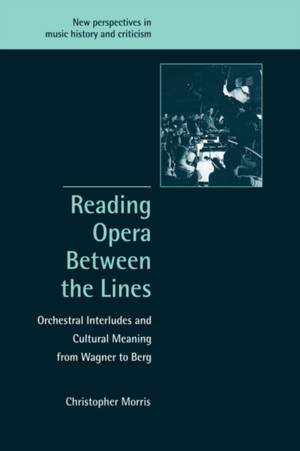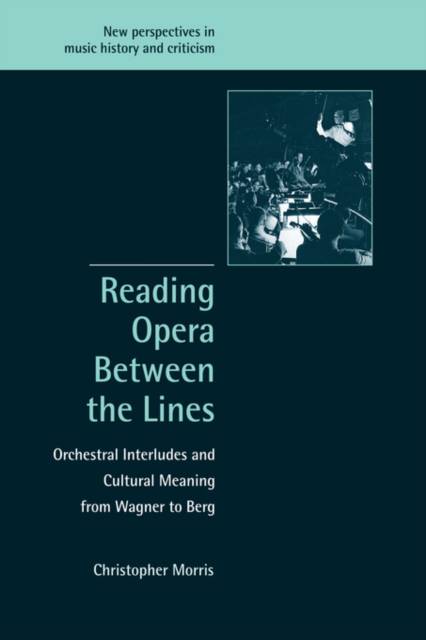
- Afhalen na 1 uur in een winkel met voorraad
- Gratis thuislevering in België vanaf € 30
- Ruim aanbod met 7 miljoen producten
- Afhalen na 1 uur in een winkel met voorraad
- Gratis thuislevering in België vanaf € 30
- Ruim aanbod met 7 miljoen producten
Zoeken
Reading Opera Between the Lines
Orchestral Interludes and Cultural Meaning from Wagner to Berg
Christopher Morris, Morris Christopher
€ 66,45
+ 132 punten
Uitvoering
Omschrijving
A characteristic feature of Wagnerian and post-Wagnerian opera is the tendency to link scenes with numerous and often surprisingly lengthy orchestral interludes, frequently performed with the curtain closed. Often taken for granted or treated as a filler by audiences and critics, these interludes can take on very prominent roles, representing dream sequences, journeys and sexual encounters. Combining studies of individual musical texts with an investigation of the critical discourse surrounding the operas, Christopher Morris investigates the implications of these important but strangely overlooked passages.
Specificaties
Betrokkenen
- Auteur(s):
- Uitgeverij:
Inhoud
- Aantal bladzijden:
- 232
- Taal:
- Engels
- Reeks:
- Reeksnummer:
- nr. 8
Eigenschappen
- Productcode (EAN):
- 9780521001977
- Verschijningsdatum:
- 5/07/2007
- Uitvoering:
- Paperback
- Formaat:
- Trade paperback (VS)
- Afmetingen:
- 152 mm x 229 mm
- Gewicht:
- 344 g

Alleen bij Standaard Boekhandel
+ 132 punten op je klantenkaart van Standaard Boekhandel
Beoordelingen
We publiceren alleen reviews die voldoen aan de voorwaarden voor reviews. Bekijk onze voorwaarden voor reviews.







